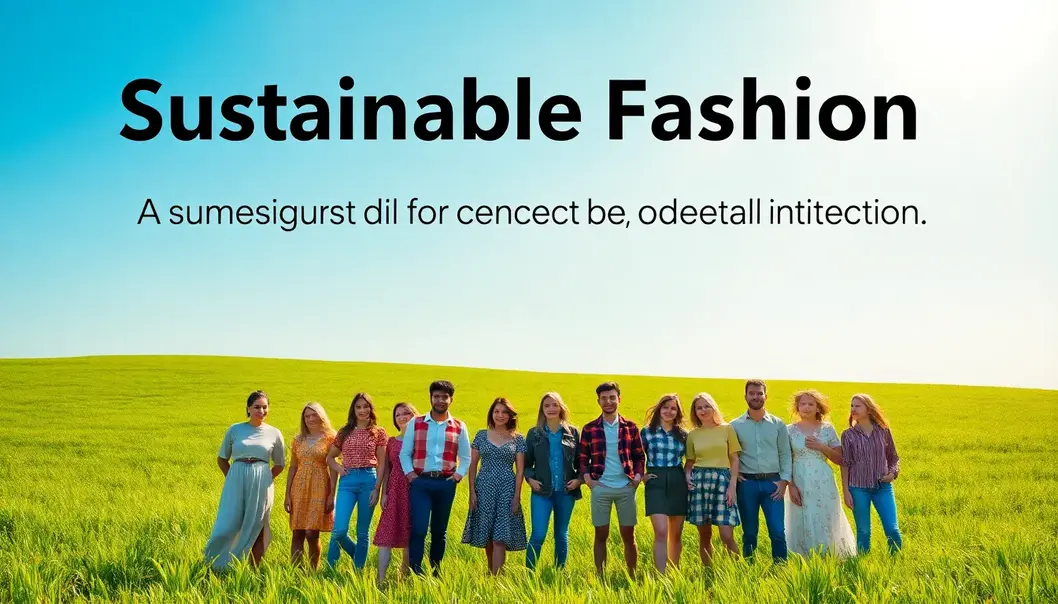Sustainable fashion is not just a fleeting trend; it’s a necessary shift towards mindful consumption. As shoppers increasingly seek to minimize their environmental footprint, the fashion industry is evolving in response. This movement goes beyond simply purchasing eco-friendly clothes; it’s about fostering a deeper connection and responsibility towards our planet. With every choice you make in your wardrobe, you hold the power to impact the environment positively. Exploring the core tenets of sustainable fashion can empower consumers to make informed decisions that contribute to a more sustainable future. Dive into this exploration of ethics in fashion, and discover how you can be part of a renewal that values both style and sustainability.
The Core Principles of Sustainable Fashion

Sustainable fashion represents a transformative shift in how the fashion industry operates, embedding ethical and eco-friendly considerations into every step of the process. At its heart, sustainable fashion revolves around three fundamental principles: eco-friendly materials, ethical labor practices, and waste reduction.
Eco-friendly materials are central to sustainable fashion. These materials minimize environmental impact throughout their life cycle, from production to disposal. Natural fibers like organic cotton, hemp, and linen are grown without harmful pesticides or synthetic fertilizers, reducing environmental pollution. Additionally, innovative materials, such as recycled polyester and Tencel, made from closed-loop processes, lower the carbon footprint by reusing existing resources. Consumers can adopt this principle by opting for clothing made from these materials and checking labels for certifications that indicate sustainable production.
Ethical labor practices ensure that everyone in the supply chain is treated fairly and operates under safe conditions. This principle highlights the necessity for transparency, allowing consumers to understand who made their clothes and under what conditions. Ethical brands prioritize fair wages, reasonable working hours, and humane working conditions. By supporting companies committed to these practices, consumers can contribute to a fairer, more just fashion industry. Researching brand policies and seeking third-party certifications can guide consumer choices.
Reducing waste is an urgent need in a world plagued by overconsumption and the resultant environmental degradation. The fashion industry is a major contributor to waste, with vast amounts of textiles ending up in landfills annually. Embracing a circular economy that keeps materials in use for as long as possible through recycling and upcycling is key to sustainable fashion. Consumers can make a difference by buying fewer, higher-quality items, thereby reducing the demand for fast fashion. Additionally, caring for clothes properly extends their lifespan, while donating and repurposing old garments prevents them from becoming waste.
Adopting these core principles requires an intentional approach to shopping and lifestyle choices. Consumers who embrace these practices play a vital part in creating a more sustainable and ethical fashion industry, ultimately contributing to preserving our planet for future generations.
Building an Eco-Conscious Wardrobe

Creating an eco-conscious wardrobe involves deliberate choices and a shift in mindset towards sustainable living. It starts with the decision to embrace second-hand shopping. Pre-loved clothing offers a treasure trove of unique, quality items. By purchasing second-hand, you divert garments from landfills and reduce the demand for new resources. Thrift stores, vintage shops, and online second-hand platforms are worth exploring.
Another key strategy is to focus on timeless pieces instead of succumbing to the fast fashion impulse. Investing in classic garments like a well-tailored jacket or a simple little black dress can provide enduring style. These items typically offer higher quality, ensuring longevity and fewer replacements, which ultimately reduces environmental impact.
Supporting brands with sustainable missions is also crucial. Look for brands transparent about their eco-friendly materials, ethical labor practices, and commitment to minimizing waste. Brands that prioritize sustainability often have third-party certifications and provide detailed information about their practices.
Taking care of your clothes extends their lifespan, dramatically reducing the need for frequent purchases. Simple acts like washing clothes in cold water, air drying when possible, and storing them properly can maintain their integrity. Repair small tears or loose buttons instead of discarding items. Learning basic sewing skills can be incredibly useful here.
The long-term environmental benefits of these strategies are substantial. Fewer clothes in landfills, reduced carbon emissions, and less water usage are direct outcomes of mindful choices. By shifting to an eco-friendly wardrobe, you not only support a greener planet but also cultivate a more meaningful and intentional personal style.
Final words
Sustainable fashion is a powerful and essential shift towards ecological responsibility in our daily lives. By understanding and embracing sustainable principles in your shopping habits, you contribute to a healthier planet and a more ethical industry. Your choices today shape the future, one garment at a time. As you continue your fashion journey, remember the profound impact of eco-friendly decisions and their role in preserving the earth for future generations.
Join the movement for a sustainable future. Explore our eco-friendly collections and start making a difference with your wardrobe choices today!
Learn more: https://www.yourcompanywebsite.com/sustainable-fashion
About us
Our company is committed to providing high-quality sustainable fashion solutions that respect our planet and its resources. We offer a wide range of eco-friendly clothing options made from sustainable materials, supporting ethical labor practices. Our mission is to help consumers make mindful fashion choices that contribute to a greener world.

